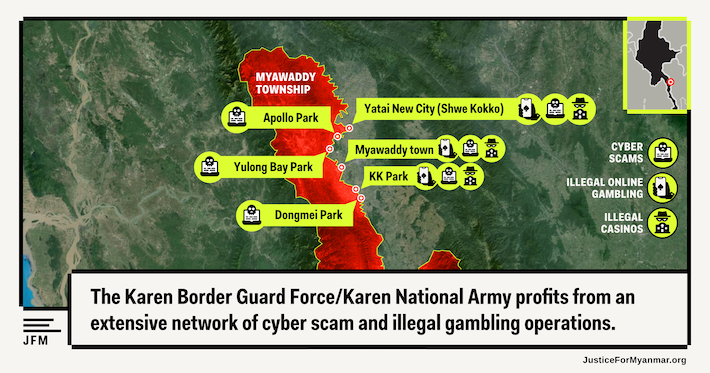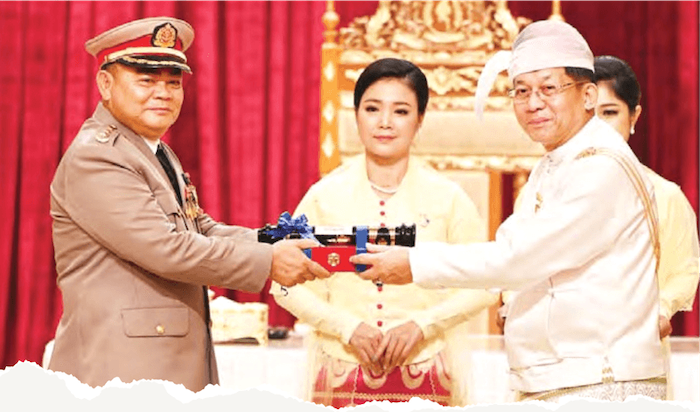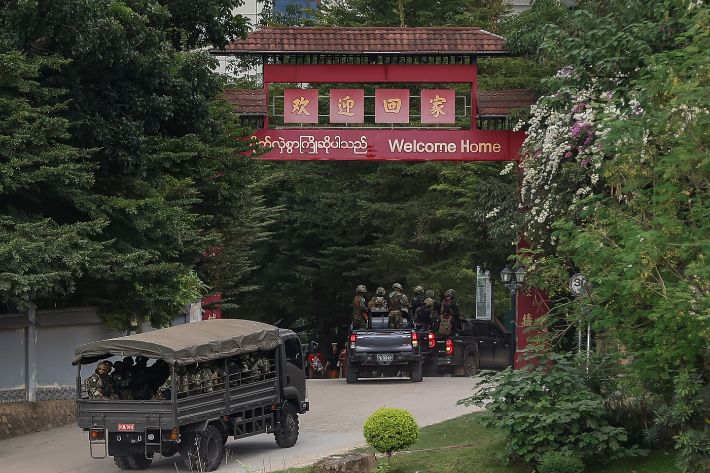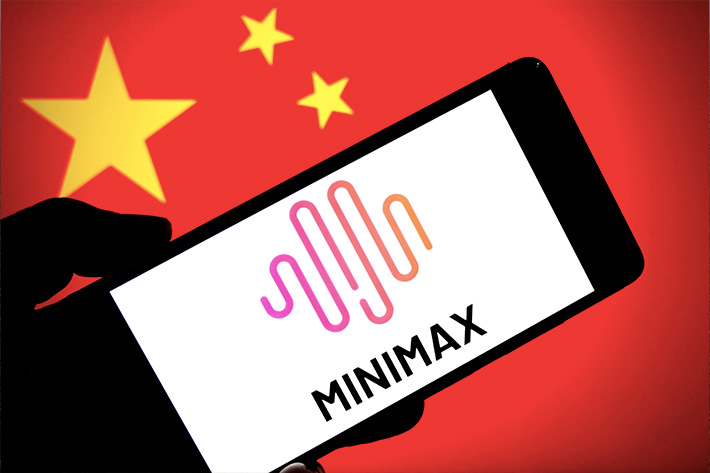US officials played a strong card earlier this month that appears to have rattled Myanmar’s most senior generals and an ethnic militia that has been a key financial backer of the military that deposed Aung San Suu Kyi nearly five years ago.
The announcement of a US Scam Centre Strike Force by senior officials in Washington on November 13 has intensified efforts to suppress scam centres near the Thai-Myanmar border, according to the latest reports from the area.
Then last week, Myanmar army officers met members of the Border Guard Force, led by the warlord Chit Thu and now known as the Karen National Army (KNA), and said that junta chief Min Aung Hlaing had instructed them to suppress scam centres on the border immediately, according to a report by Reuters on Friday.
ALSO SEE: States Seize $700m Prince Group Assets Amid Hunt for ‘Scam Billionaire’
The Army chief was concerned that the scam centres were severely damaging the country’s reputation and urged the KNA “to carry out an aggressive crackdown before the election,” a source was quoted as saying.
The military is preparing for a multi-phase election, due to start on December 28, although it has been widely derided as a sham to perpetuate the military’s control.
The junta has claimed to be taking part in multinational efforts to curb scam centres, but the sources who spoke to Reuters said the urgency to conduct further operations may be linked to anxiety over possible US actions.
Huge rewards
In recent months, the Trump Administration has sought to counter scamming by crime networks in Southeast Asia by imposing sanctions against two entities in Cambodia – the Prince Group and Huione Group, as well as key figures in the Karen militia, formerly known as the Democratic Benevolent Army (DKBA), protecting Chinese gangsters in the Myawaddy area adjacent to Thailand.
The US ‘Strike Force’ includes personnel from the Federal Bureau of Investigation (FBI), US Secret Service and US Treasury.
A senior State Department official said it is also offering rewards of up to $25 million “for information leading to the arrest and or conviction of high-level transnational criminals involved in scamming US citizens .. or information leading to the seizure and forfeiture of scam proceeds.”
A similar sum has also been dedicated to “security assistance” to support the strike force, as part of efforts to counter the scammers in Southeast Asia, who a US Treasury official said had stolen around $10 billion from Americans last year – often life savings of elderly citizens – via investment and romance scams, generally involving cryptocurrency.
A Myanmar military official at the meeting with the KNA last Sunday explained that they could not risk US teams crossing the border to start investigations. “We must solve the problem ourselves,” he was quoted as saying.
This suggests that after years of allowing scam centres to proliferate, the junta is bending to growing international pressure. Previously, the Myanmar military government largely stayed on the sidelines, saying it had limited authority in far-flung border areas.

Beijing also pushing for crackdown
Scam operations in Southeast Asia grew out of loosely regulated casinos and online gambling, then expanded dramatically during the Covid-19 pandemic as criminal groups sought new sources of income amid lockdowns and strict border controls.
Shwe Kokko, a major scam compound in Myawaddy, was set up in 2017 by the Hong Kong-registered Yatai International Holdings Group, and initially advertised as a casino destination, according to the United States Institute of Peace.
Analysts are monitoring reactions to the latest news in both Myanmar and Cambodia with a degree of scepticism, given the fact scamming is now deeply embedded in both countries. Indeed, the US has estimated that earnings from scam operations is worth between $12 billion and $19 billion to Cambodia, which would be about 40% of annual GDP.
But Jason Tower, a senior expert at the Global Initiative against Transnational Organized Crime, told Reuters the US announcement of the multi-agency “Scam Centre Strike Force” to dismantle the compounds was the game-changer.
Early this month, Thailand extradited gambling kingpin She Zhijiang, who previously headed the Shwe Kokko complex, to China at Beijing’s request. He was arrested by Thailand in 2022.
“Two global powers pushing for a crackdown puts the Myanmar military and its BGF (Border Guard Force) in a difficult position,” Tower said, referring to the KNA by its previous name.
“The Myanmar military likely now sees increasingly clearly that more and more members of the international community are mobilizing to address the massive threat to global security that the scam centres present.”
US officials said last week they want to promote secure use of cryptocurrency, through ‘trusted’ US vendors, given the Trump Administration is hoping to usher in a “golden age of crypto.”

Karen militia ‘cooperating with crackdown’
On Monday, Myanmar state media reported that Min Aung Hlaing had told military commanders at a regional headquarters to “eradicate” scam centres “as a national responsibility,” but did not give details.
The Myanmar military has reportedly blown up or demolished 180 buildings, mainly at a compound called KK Park, but last Tuesday soldiers from the KNA and the Myanmar army also entered a separate compound known as Shwe Kokko.
Naing Maung Zaw, a spokesman for the Karen militia, told Reuters that they led the crackdown and the military joined the operation after being informed of the action.
“Our leader decided that cooperating with the military might make some processes smoother,” he said, “These operations are led by us.”
On Friday, Myanmar state media said they had detained over 1,000 foreign nationals and seized 2,653 computers and 21,750 mobile phone. However, those figures represent just a fraction of the people believed to be detained and forced to work in scam compounds along the Thai-Myanmar border.
The same day a junta spokesman said in a televised announcement that the military believed the US Strike Force had a “hidden agenda,” although it did not say exactly what.
Even if scamming is shut down in Shwe Kokko, there is still a third major compound – Tai Chang compound near the Thai border, as shown on the map above. Critics have said it appears be “flourishing”.
Experts monitoring the crime gangs say vigorous efforts will be needed to eliminate all the scam centres, but where things go from here is hard to say. Will more sites rise again after Myanmar’s “sham election”?
With the amount of money they allegedly make, no-one would be surprised.
- Jim Pollard
ALSO SEE:
US, UK Lauded for Scam Centre Sanctions, $15bn Bitcoin Seizure
US Targets Billion-Dollar Scam Networks in Myanmar, Cambodia
Cambodian Scam Centres Straining Ties With States Near And Far
US Sanctions Karen Warlord, Cambodia ‘Money Laundering Group’
Cyber Scam Hubs Spread From Asia Like a Global Cancer: UN
SE Asia Crime Networks Rely on Telegram, Crypto, UN Says
Weak ASEAN Nations ‘at Risk of Evolving Into Scamming States’
N Korean Hackers Used Cambodian Firm to Launder Stolen Crypto
























